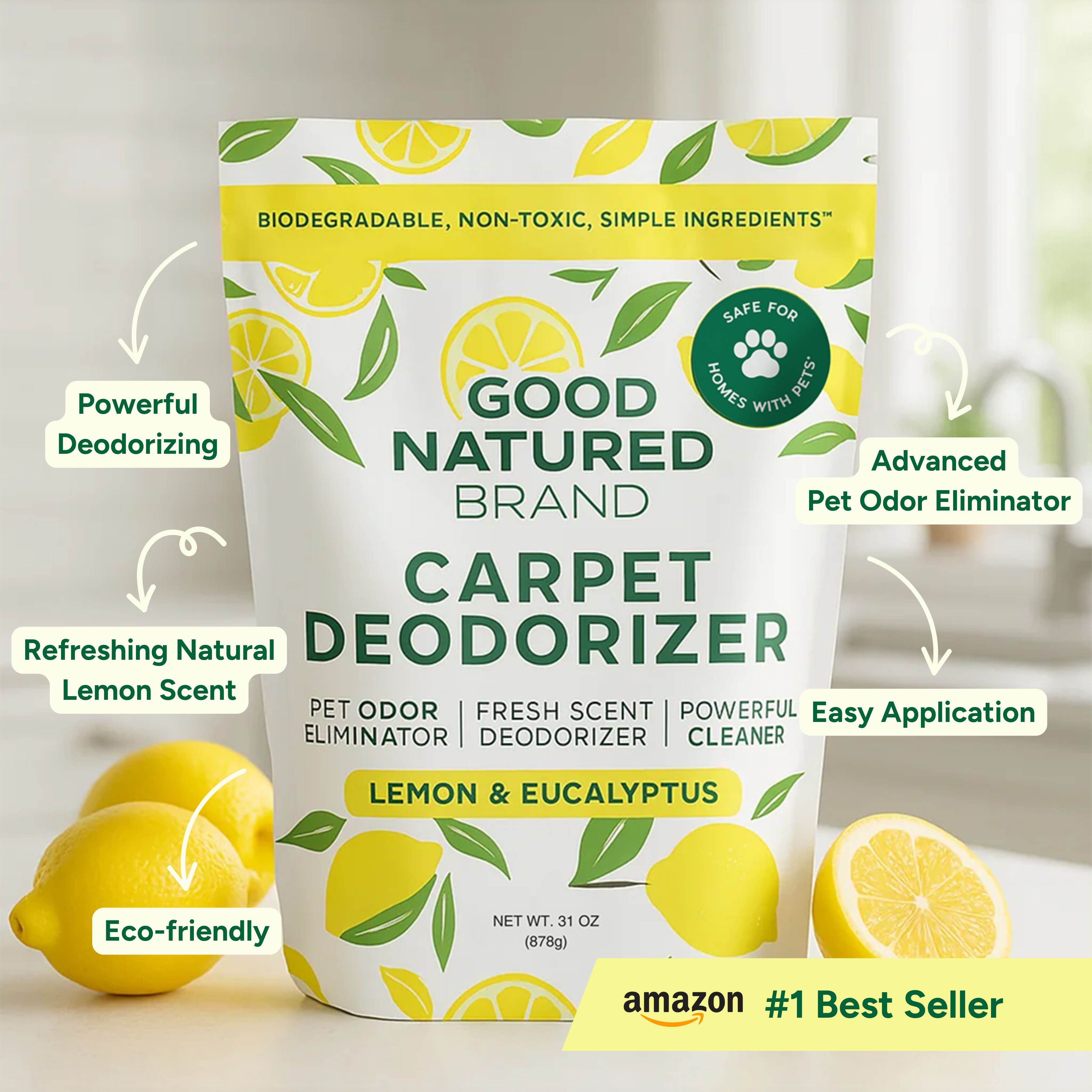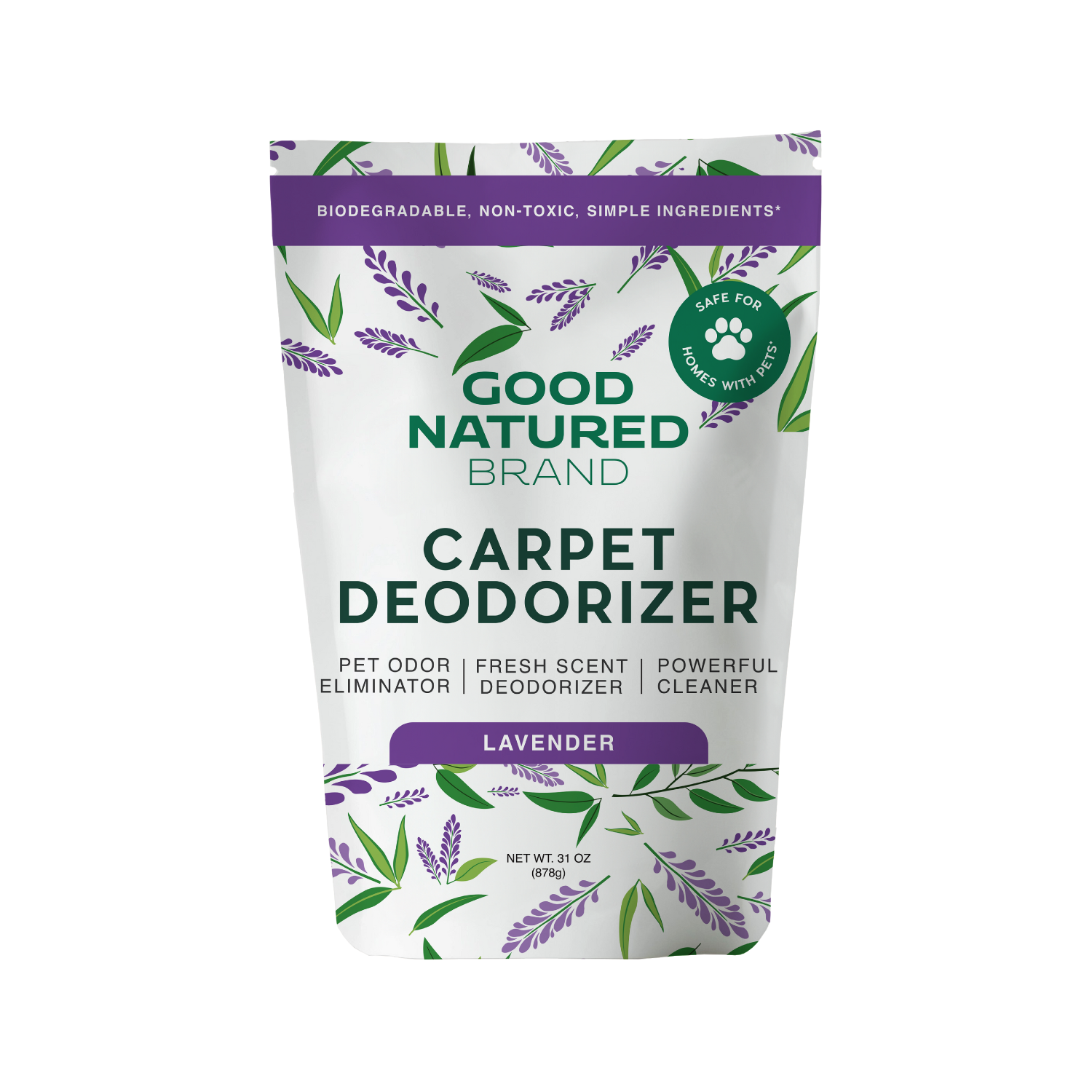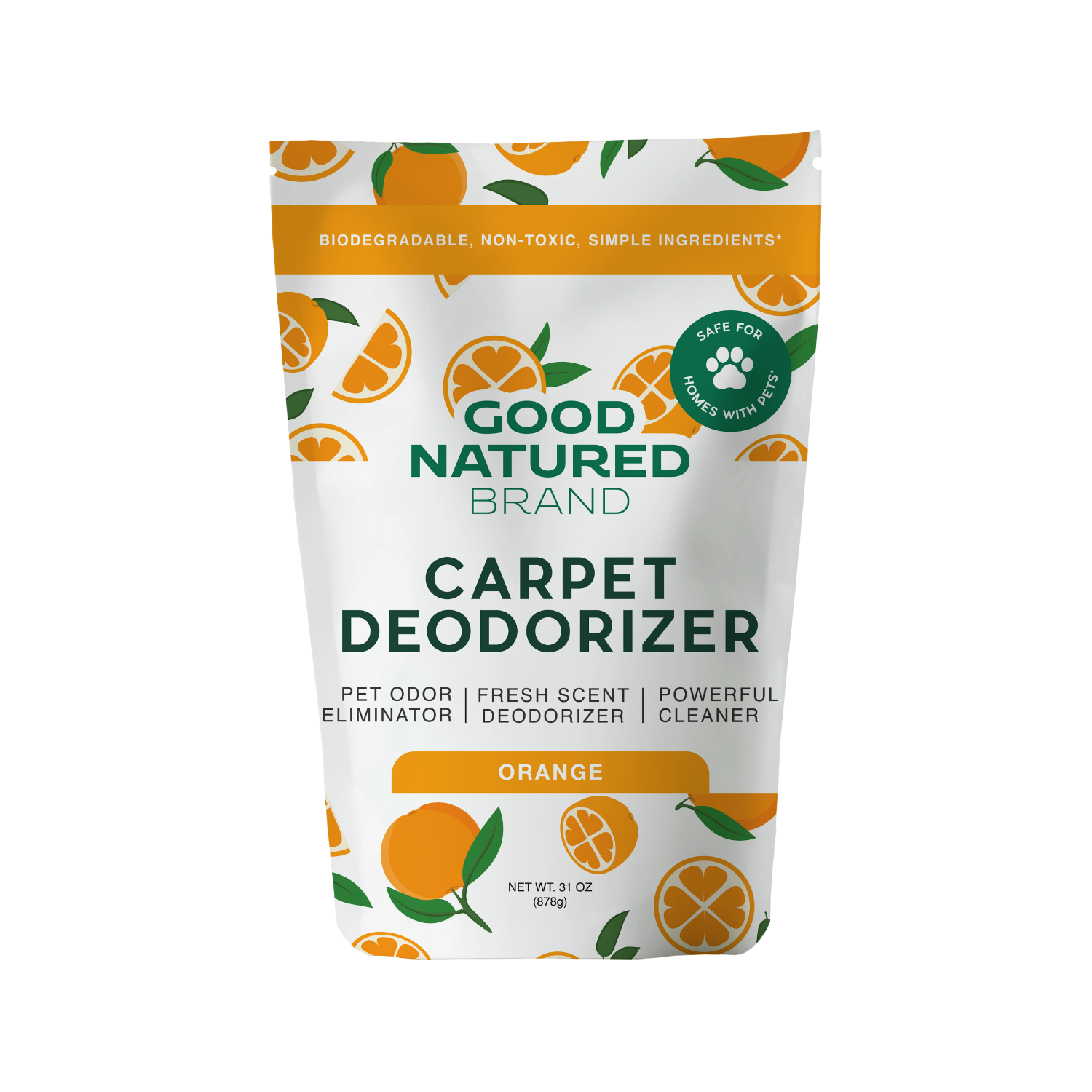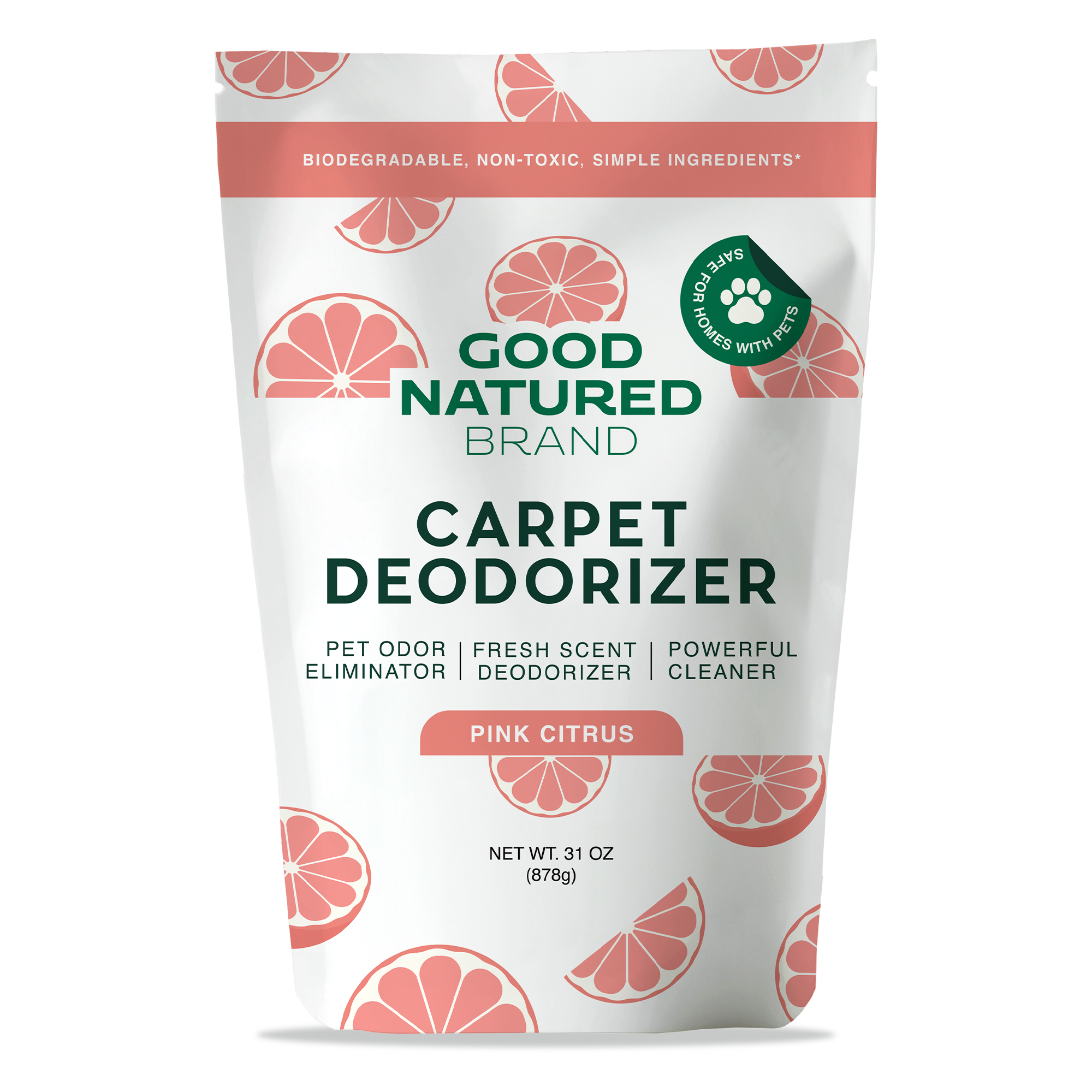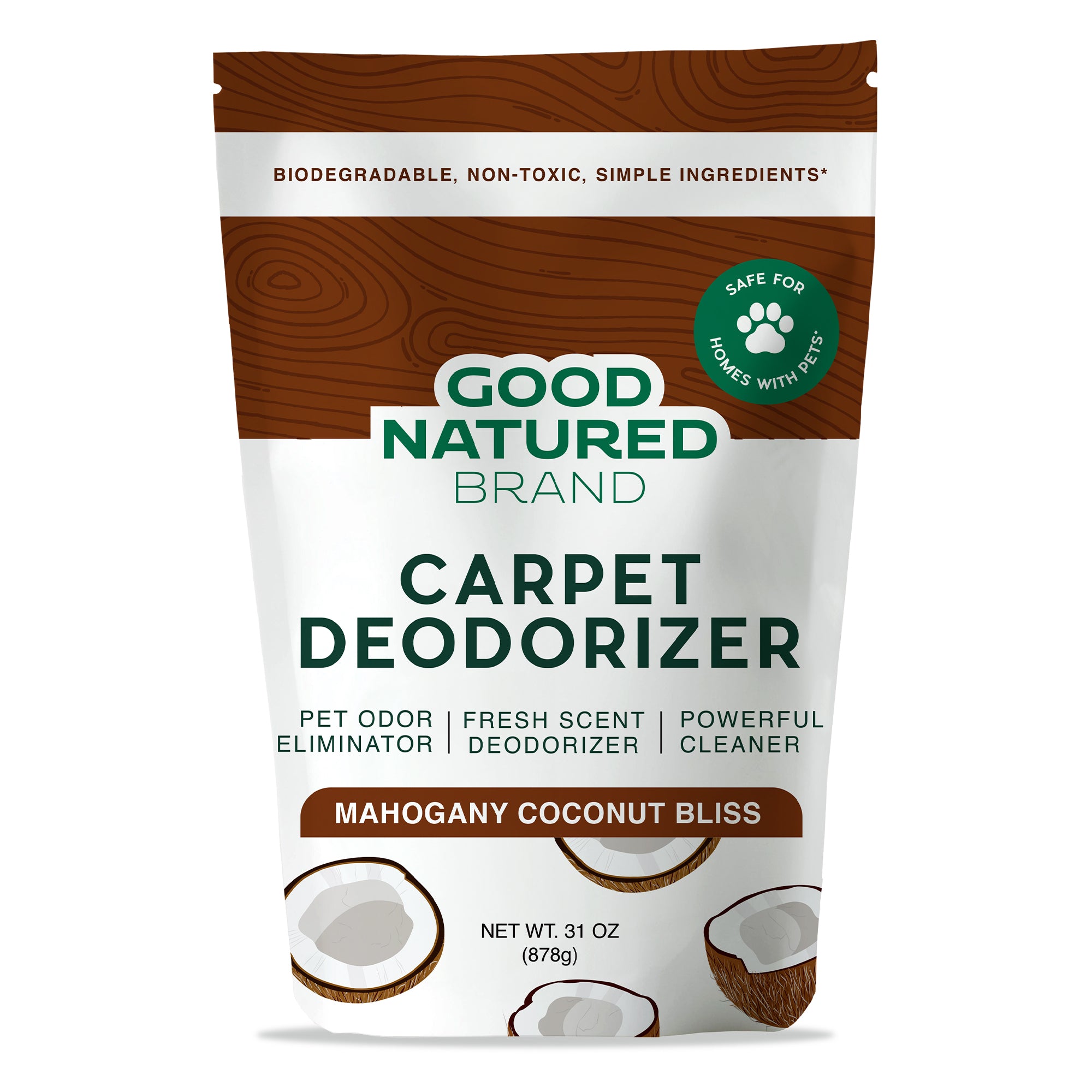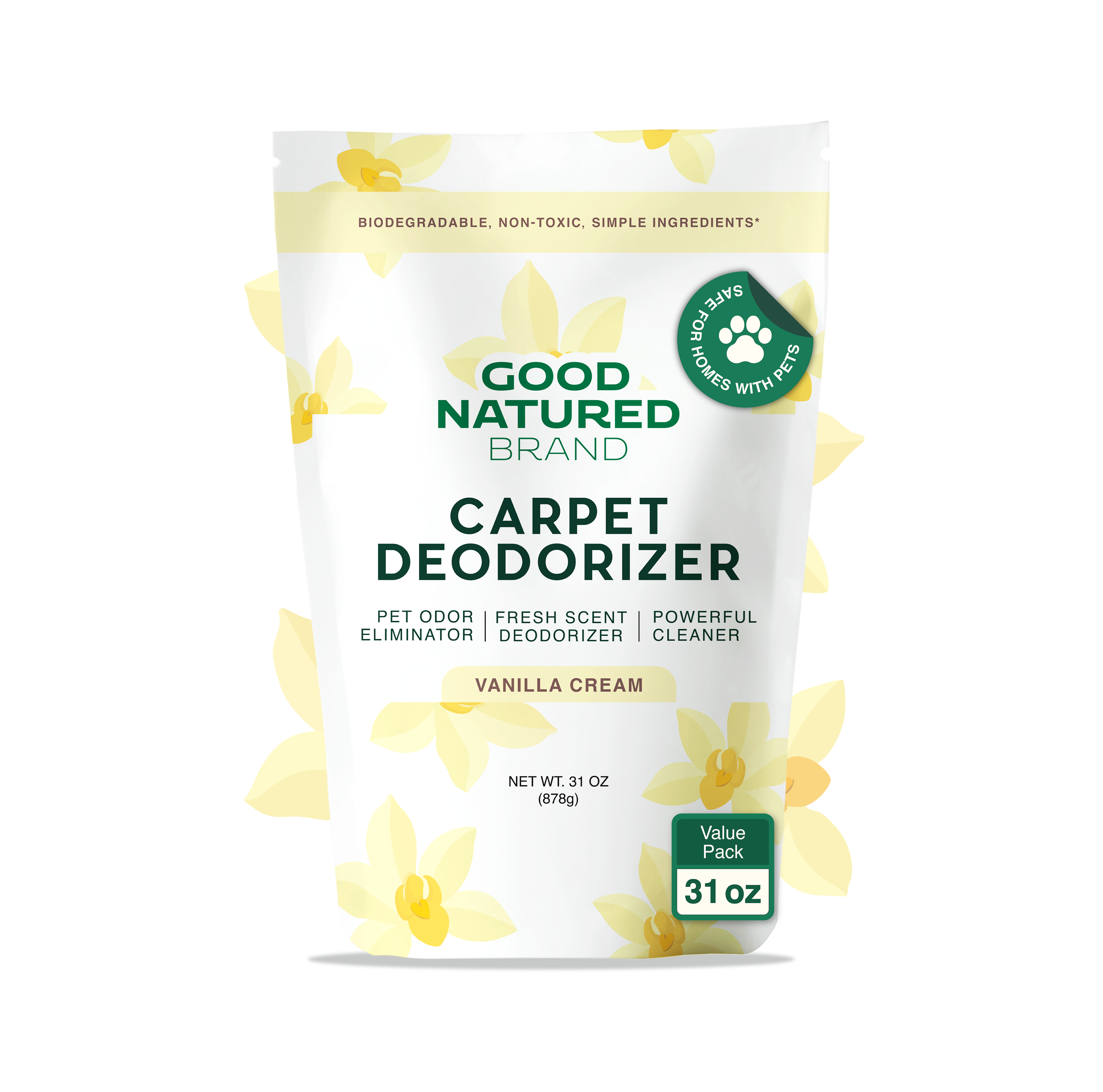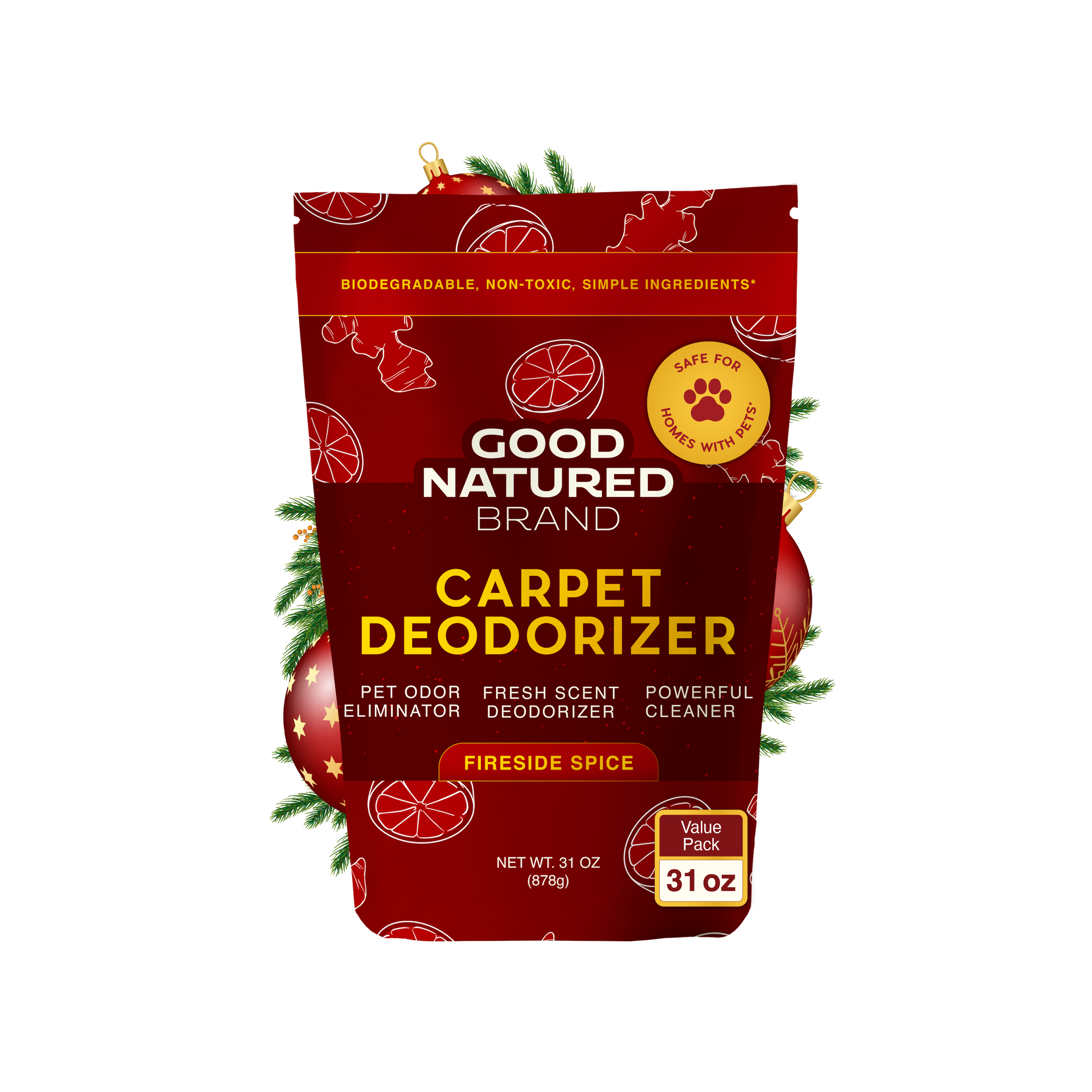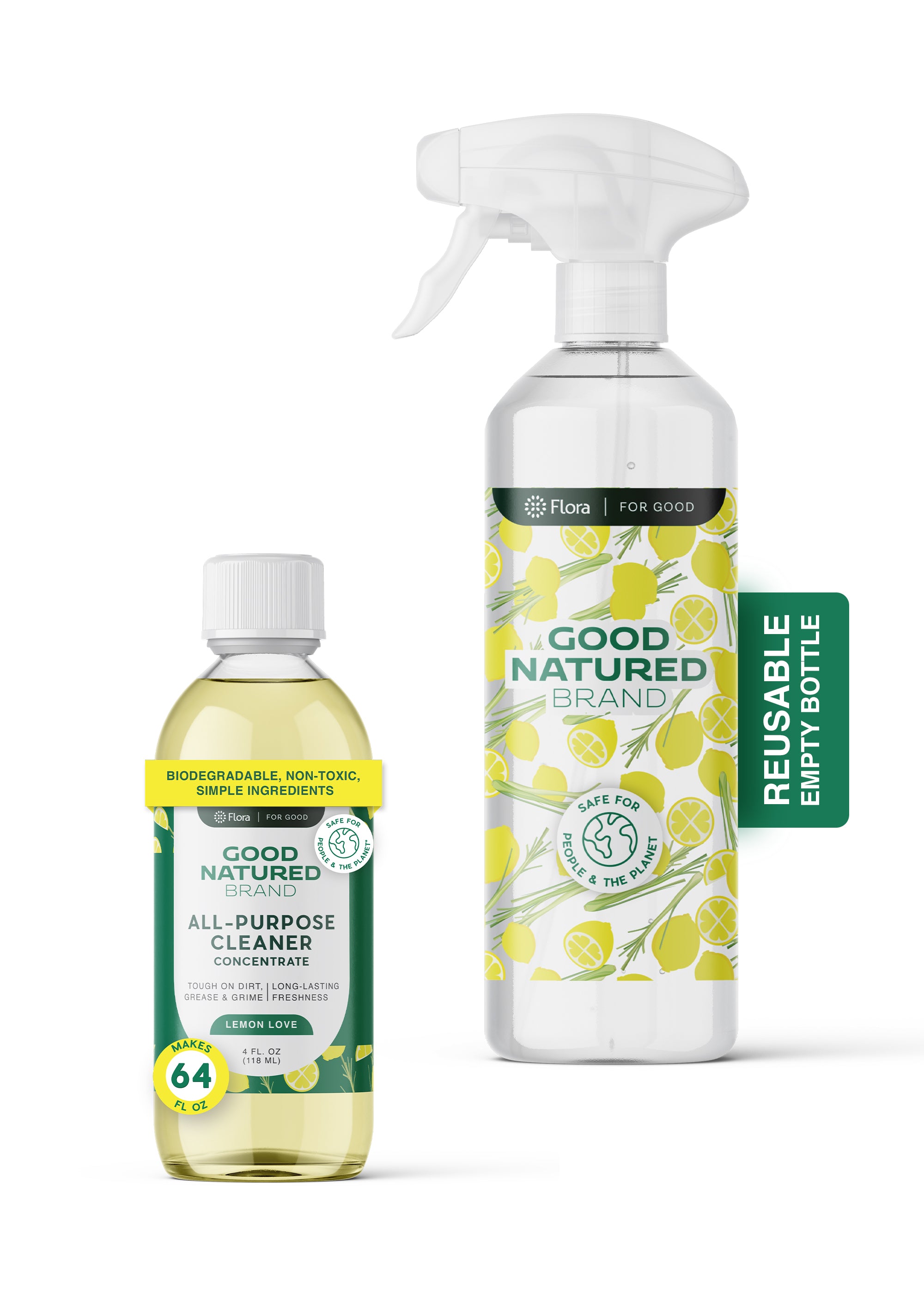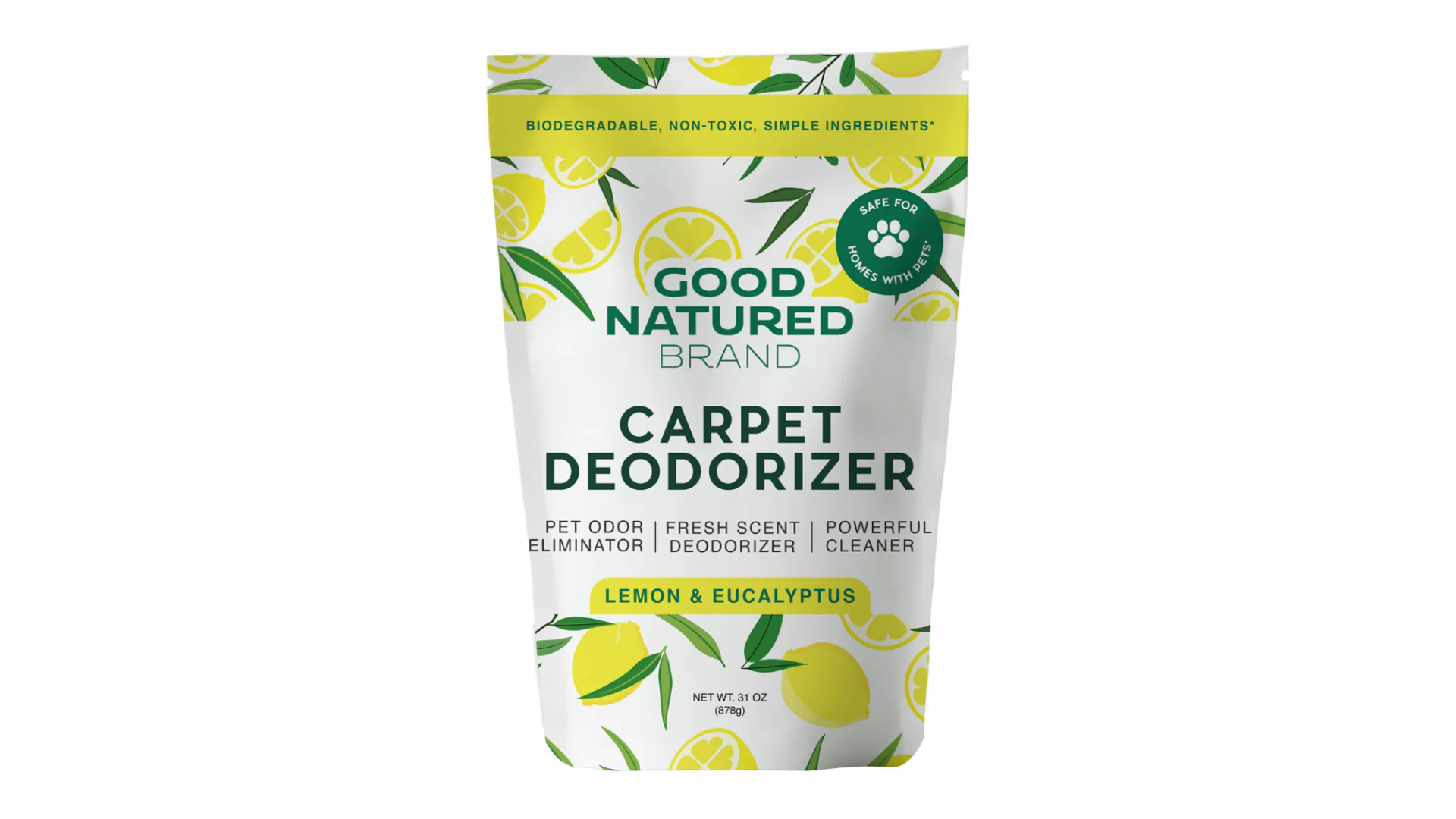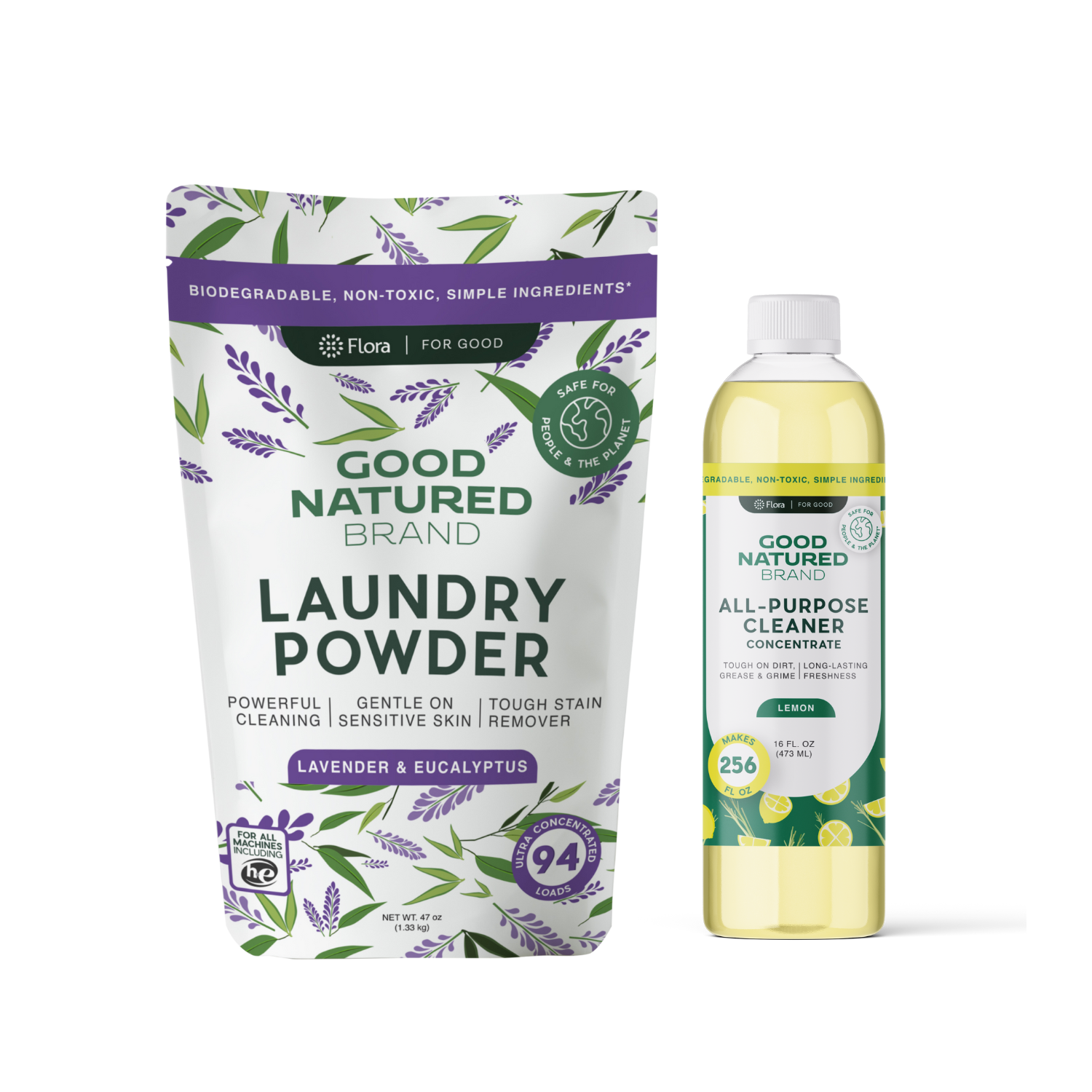The carpet powder you're using to freshen your home might be doing more harm than good. Conventional deodorizers often contain synthetic fragrances and chemical compounds that linger in carpet fibers, becoming airborne with every footstep and potentially affecting your family's health.
Plant-based carpet deodorizers offer a safer alternative that actually eliminates odors rather than masking them with stronger scents. This article explores how natural ingredients protect your family and pets, why they work better at neutralizing odors at the source, and what to look for when choosing a truly non-toxic carpet deodorizer.
Why Choose Plant Based Carpet Deodorizers
Plant-based carpet deodorizers use ingredients from renewable sources like baking soda, essential oils, corn starch, and plant enzymes instead of synthetic fragrances and chemical compounds. The difference matters because natural alternatives are safer for homes with children and pets while improving indoor air quality by avoiding harsh chemicals that linger in carpet fibers and become airborne. When you sprinkle a plant-based deodorizer on your carpet, you're choosing ingredients that work with your home's environment rather than against it.
Traditional carpet powders often contain synthetic fragrances, artificial dyes, and petroleum-based ingredients that can irritate sensitive individuals and leave chemical residues throughout your living spaces. You might not see these residues, but they're there—in the air you breathe and on the surfaces where your family sits and plays. Plant-derived formulations, on the other hand, use recognizable ingredients that break down naturally without leaving harmful traces behind.
The effectiveness comes from how these natural ingredients actually neutralize odors at the molecular level rather than simply covering them up with stronger scents. Baking soda absorbs odor molecules, plant enzymes break down organic matter causing smells, and essential oils provide gentle fragrance while killing odor-causing bacteria.
Key Health Benefits for Families and Pets
Switching to plant-based carpet deodorizers significantly reduces your family's exposure to toxic chemicals that can affect health over time. Unlike conventional products that may contain allergens, irritants, and substances linked to respiratory issues, natural formulations prioritize safety without compromising how well they work.
Skin-Friendly and Hypoallergenic
Plant-based carpet deodorizers typically avoid common irritants found in synthetic products, making them gentler on skin that touches treated carpets. Children who play on the floor and pets who lie on carpets come into direct contact with whatever you've sprinkled there. Natural ingredients like baking soda and corn starch don't irritate skin or trigger allergic responses the way chemical additives can.
When you're evaluating products, watch for synthetic ingredients that commonly cause skin sensitivities:
-
Synthetic fragrances: Often contain dozens of undisclosed chemicals that trigger allergic reactions
-
Phthalates: Chemical compounds used to make scents last longer but linked to skin irritation
-
Artificial dyes: Serve no cleaning purpose and can cause contact dermatitis
-
Quaternary ammonium compounds: Antimicrobial agents that may irritate sensitive skin
Respiratory Relief From Synthetic Fragrances
Artificial fragrances in conventional carpet powders can trigger asthma attacks, worsen allergies, and cause headaches in sensitive individuals. The synthetic scents release volatile organic compounds (VOCs) into your indoor air, which can accumulate in poorly ventilated spaces. Plant-based alternatives use essential oils that provide pleasant aromas without the respiratory risks associated with chemical fragrances.
The difference becomes especially noticeable in homes where family members have asthma or seasonal allergies. Natural scents from lavender, chamomile, or citrus oils are less likely to provoke respiratory distress while still delivering a fresh, clean smell.
Pet Safe if Licked or Inhaled
Pets spend considerable time on carpeted surfaces and often groom themselves after contact, making non-toxic ingredients essential for their safety. Traditional carpet deodorizers may contain chemicals that harm pets if ingested or inhaled. Plant-based formulations eliminate this concern by using food-grade ingredients like baking soda and carefully selected essential oils that are safe for pets.
However, not all essential oils are pet-friendly—tea tree oil and certain citrus oils can be problematic for cats. Quality plant-based deodorizers specifically formulate their products with pet safety in mind, using only oils that pose no risk to your furry family members.
Reduces Allergen Load Indoors
By avoiding synthetic chemicals and artificial fragrances, plant-based carpet deodorizers help maintain better indoor air quality and reduce the overall allergen burden in your home. The products don't introduce new irritants into your environment, which matters particularly for households dealing with multiple chemical sensitivities. You get fresher carpets without the trade-off of compromised air quality.
Environmental Advantages of Natural Carpet Odor Removal
Choosing plant-based carpet deodorizers extends benefits beyond your home to the broader environment. The products are designed with sustainability in mind, from ingredient sourcing through disposal.
Biodegradable Ingredients
Natural components like baking soda, corn starch, and plant enzymes break down safely in the environment without persisting in soil or water systems. When you vacuum treated carpets, the residue that ends up in landfills decomposes naturally rather than contributing to long-term pollution. Synthetic chemicals, in contrast, can remain in the environment for years, accumulating in ecosystems.
Renewable Plant Sources
Plant-derived ingredients come from sustainable, renewable resources rather than petroleum-based chemicals that deplete finite fossil fuel reserves. Ingredients like coconut-derived surfactants and corn starch are grown and harvested in cycles that can continue indefinitely with proper agricultural practices.
Minimal Water Pollution
When plant-based ingredients eventually wash into water systems through household drains or landfill runoff, they don't contaminate waterways with persistent chemicals. Synthetic fragrances and petroleum-based compounds can harm aquatic life and disrupt ecosystems, while natural ingredients integrate harmlessly into the environment.
How Plant Derived Ingredients Neutralize Odors at the Source
Understanding how natural ingredients work helps explain why plant-based deodorizers can be just as effective—or more effective—than their chemical counterparts. The science behind natural odor elimination is both straightforward and powerful.
Absorption With Baking Soda and Corn Starch
Baking soda (sodium bicarbonate) is a natural odor absorber that works by neutralizing acidic odor molecules on contact. The porous structure traps smell-causing particles, physically removing them from carpet fibers rather than masking them with fragrance. Corn starch works similarly, absorbing moisture and oils that harbor odors while leaving carpets feeling fresh and dry.
Both ingredients work particularly well on pet odors, food spills, and musty smells that develop in high-traffic areas. The absorption happens during the time between application and vacuuming, giving the powder time to draw out embedded odors.
Enzymatic Breakdown of Pet Proteins
Plant-based enzymes are biological catalysts that break down organic matter at the molecular level, targeting the proteins and bacteria that cause persistent odors. This matters especially for pet owners dealing with urine, vomit, or other biological messes that conventional deodorizers simply cover up. Enzymes literally digest the odor-causing compounds, eliminating them completely rather than temporarily masking the smell.
The enzymatic action continues working even after application, providing longer-lasting freshness compared to products that only perfume the air. You'll notice this particularly in homes with multiple pets or recurring odor challenges.
Essential Oils for Antimicrobial Action
Certain essential oils possess natural antimicrobial properties that kill odor-causing bacteria on carpet surfaces. Lavender, eucalyptus, and tea tree oils (in pet-safe formulations) can reduce bacterial populations that contribute to unpleasant smells. This dual action—providing pleasant scent while addressing bacterial sources of odor—makes essential oils valuable components in natural deodorizers.
Safe and Simple Steps to Deodorize Carpets
Using plant-based carpet deodorizers effectively requires following a few straightforward steps that maximize their odor-fighting potential.
1. Test a Small Area
Before treating your entire carpet, apply the deodorizer to an inconspicuous spot to check for any unexpected reactions with your carpet fibers or dyes. While plant-based products are generally safe for all carpet types, variations in carpet manufacturing mean confirming compatibility first makes sense. Wait 24 hours and vacuum the test area to verify no discoloration or texture changes occur.
2. Sprinkle Evenly Over the Carpet
Apply the deodorizer in a thin, even layer across the carpet surface, focusing on high-traffic areas and spots where odors are most noticeable. Over-application doesn't improve results and can make vacuuming more difficult, so aim for light, consistent coverage.
3. Allow 15 Minutes of Dwell Time
Give the natural ingredients time to work by letting the powder sit on the carpet for at least 15 minutes—longer for stubborn odors. During this period, the baking soda absorbs odor molecules, enzymes break down organic matter, and essential oils release their antimicrobial properties. For particularly challenging smells, you might extend the time to 30 minutes or even overnight.
4. Vacuum Thoroughly With Clean Filter
Remove the deodorizer completely by vacuuming the treated area thoroughly, making multiple passes to lift all powder from carpet fibers. A clean vacuum filter is essential for optimal suction and to prevent redistributing trapped odors back into your home.
Comparing Plant Based and Conventional Carpet Powders
Understanding the differences between natural and synthetic carpet deodorizers helps you make informed choices for your home.
|
Feature |
Plant-Based Deodorizers |
Conventional Powders |
|
Ingredients |
Baking soda, corn starch, essential oils, plant enzymes |
Synthetic fragrances, artificial dyes, chemical compounds |
|
Safety Profile |
Non-toxic, pet-safe, hypoallergenic |
May contain irritants and allergens |
|
Odor Elimination |
Neutralizes at molecular level |
Often masks with strong fragrance |
|
Indoor Air Quality |
Improves with natural scents |
May release VOCs and synthetic chemicals |
|
Environmental Impact |
Biodegradable, renewable sources |
Petroleum-based, persistent in environment |
Ingredient Transparency
Plant-based products typically list all ingredients clearly on the label, allowing you to know exactly what you're applying to your carpets. Conventional products often hide dozens of chemicals under vague terms like "fragrance" or "perfume," which can contain hundreds of undisclosed compounds.
Safety for Pets and Kids
The toxicity difference between natural and synthetic deodorizers becomes most apparent when considering vulnerable household members. Plant-based options eliminate concerns about harmful exposures from crawling babies or pets who spend hours on treated carpets. Conventional products may carry warning labels about keeping children and pets away from treated areas—a signal worth paying attention to.
Residue and Build-Up
Natural ingredients like baking soda vacuum up cleanly without leaving sticky or oily residues that attract dirt over time. Some conventional powders contain ingredients that can build up in carpet fibers, actually making carpets dirtier faster and requiring more frequent deep cleaning.
Scent Longevity
Natural scents from essential oils are typically subtler and fade more quickly than synthetic fragrances. While conventional products might provide overpowering scent for weeks, plant-based alternatives offer gentle freshness for a few days. This difference reflects the focus on true odor elimination rather than long-lasting perfume coverage.
Selecting a Non Toxic Carpet Deodorizer That Works
Navigating the marketplace for truly natural carpet deodorizers requires knowing what to look for and which marketing claims to question.
Read the Ingredient Label First
The ingredient list tells you everything you need to know about a product's true nature. Look for recognizable, plant-derived ingredients and be wary of long chemical names you can't pronounce. If a product doesn't list its ingredients clearly or hides behind proprietary formulas, that's a warning sign.
Look for Third-Party Certifications
Certifications from organizations like EPA Safer Choice, USDA BioPreferred, or Leaping Bunny provide independent verification that products meet specific standards for safety and sustainability. Third-party evaluations offer assurance beyond manufacturer claims, confirming that the product has been tested and verified by unbiased experts.
Match the Scent to Sensitivities
Even natural essential oils can trigger sensitivities in some individuals, so consider your household's specific needs when selecting scents. Unscented options using only baking soda and corn starch work well for fragrance-sensitive homes, while those who enjoy aromatherapy benefits might prefer lavender or citrus blends.
Ready to experience the difference of truly natural carpet care? Shop pet-safe cleaning essentials that prioritize your family's health and the environment.
Common Myths About Natural Deodorizers Debunked
Several misconceptions prevent people from trying plant-based alternatives, even though the concerns are often unfounded.
They Only Mask Odors
This misconception likely stems from experiences with low-quality "natural" products that rely solely on essential oil fragrances. Quality plant-based deodorizers use multiple approaches—baking soda absorbs odor molecules, enzymes break down organic matter, and essential oils provide antimicrobial action. This combination eliminates odors at their source rather than covering them with stronger scents.
They Are Too Expensive
While the upfront cost per container may be higher than conventional options, plant-based deodorizers often require less frequent application because they truly eliminate odors. When you factor in the health costs of chemical exposure, the value equation shifts significantly.
They Don't Work on Pet Urine
Plant enzymes are specifically designed to break down the proteins in pet urine that cause persistent ammonia smells. Enzymatic cleaners are often more effective on biological odors than chemical alternatives because they digest the odor-causing compounds rather than attempting to overpower them.
All Essential Oils Are Safe for Pets
While plant-based products are generally safer for pets, not all essential oils are pet-friendly, particularly for cats. Tea tree oil, wintergreen, and certain citrus oils can be toxic to felines, while dogs tolerate a wider range of oils. Reputable manufacturers of pet-safe deodorizers carefully select only oils that pose no risk to household animals.
Make the Switch to Safer Fresh Floors
The benefits of plant-based carpet deodorizers extend far beyond simple odor control, encompassing family health, pet safety, and environmental responsibility. By choosing natural ingredients over synthetic chemicals, you create a healthier home environment without sacrificing cleaning effectiveness.
Making the switch doesn't require dramatic changes—simply replace your current carpet deodorizer with a plant-based alternative at your next purchase. You'll likely notice the difference immediately: gentler scents, no chemical residue, and true odor elimination rather than masking. Good Natured Brand's commitment to plant-based, pet-safe solutions reflects the belief that effective cleaning doesn't have to compromise your family's well-being or the environment.
Shop pet-safe cleaning essentials to discover how natural ingredients deliver powerful results without harsh chemicals.
FAQs About Plant Based Carpet Deodorizers
Can I use a plant based carpet deodorizer on upholstery?
Most plant-based carpet deodorizers work well on upholstery since the same natural ingredients that are safe for carpet fibers are equally gentle on fabric furniture. However, testing a hidden area first makes sense—perhaps under a cushion or on the back panel—because upholstery fabrics vary widely in their construction and dye stability.
Will it damage or clog a robotic vacuum?
Quality plant-based deodorizers with finely milled ingredients won't cause problems for robotic vacuums, though you'll want to clean the filters more frequently when using any carpet powder. The key is using products with particles sized appropriately for standard vacuum systems and emptying your robotic vacuum's dustbin after treating carpeted areas.
How long does the natural scent typically last?
Natural essential oil scents are inherently more subtle and shorter-lived than synthetic fragrances, typically providing noticeable freshness for two to four days. This shorter duration actually reflects the product's focus on true odor elimination rather than long-lasting perfume coverage—once the underlying odors are neutralized, you don't need overpowering scents to maintain freshness.
Can a plant based powder also lift stains?
Plant-based deodorizers primarily target odors rather than visual stains, though ingredients like baking soda can help absorb fresh spills and lighten surface discoloration when applied quickly. For actual stain removal, you'll want to use a dedicated carpet cleaner or spot treatment designed for that purpose.
Is it more expensive in the long run than chemical powders?
While plant-based options may have a higher initial price point, their superior effectiveness at eliminating rather than masking odors often means you can use less product and treat carpets less frequently. The investment in quality ingredients pays dividends in both immediate results and long-term family wellness.
